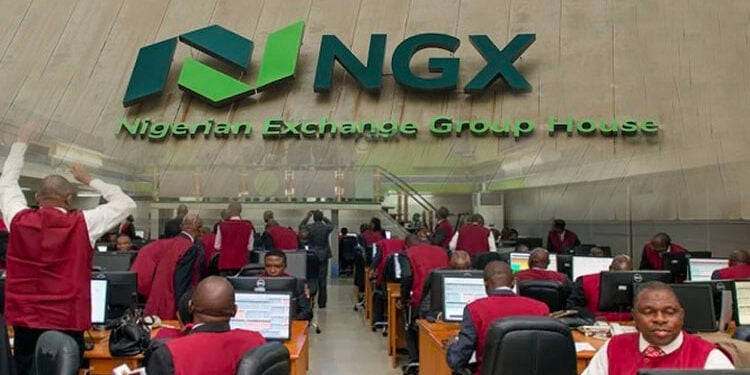In the dynamic world of African finance, few transformations have been as consequential as the demutualisation of the Nigerian Stock Exchange (NSE) into the Nigerian Exchange Group Plc (NGX Group) in 2021.
This shift from a member-owned mutual body into a for-profit public limited company (PLC) was more than a legal restructuring.
It marked a decisive leap toward modernisation, transparency, and global credibility. Four years later, the impact is undeniable: investor confidence has shot up, trading volumes have doubled, and the NGX now anchors Nigeria’s economic reform narrative.
From Mutual to Market Leader: The Demutualisation Journey
The roots of this transformation trace back to the Demutualization of the NSE Act (2018), which paved the way for converting the exchange’s ownership from brokers to shareholders. After securing SEC and Corporate Affairs Commission approvals, the NSE officially became NGX Group Plc in March 2021, a holding company structure housing NGX Exchange, NGX Regulation Ltd., and NGX Real Estate Ltd.
By October 2021, NGX Group listed its own shares on the exchange by introduction, a symbolic milestone that merged confidence with self-accountability. More importantly, it separated regulatory and commercial functions, addressing historical governance issues that had characterized the old structure.
How Becoming a PLC Supercharged Confidence
While demutualisation is a global trend, its timing and execution in Nigeria were uniquely transformative. Here’s why it re-energised investors:
1. World-Class Governance and Transparency
Listing as a PLC imposed stricter disclosure standards and independent board oversight.
This removed conflicts of interest where brokers once both owned and regulated the market. The result: institutional-grade governance, comparable to peers like the JSE and Nairobi Securities Exchange.
Investors, particularly foreign funds, now view the NGX as a trustworthy, rules-based platform.
2. Access to Capital and Innovation
As a corporate entity, NGX can now raise funds through equity issuance, rather than relying solely on member contributions.
This has financed new initiatives, including digital trading infrastructure, ESG products, and data services, making the market more dynamic and investable.
The ability to reinvest profits into growth has also attracted strategic investors, aligning shareholder value with market performance.
3. Broader Ownership, Broader Trust
Demutualisation democratised the exchange.Ownership is no longer the preserve of broker-dealers; Retail and institutional investors can now hold NGX shares.
This inclusivity enhances legitimacy and expands the market’s social base. The result: stronger participation and record foreign inflows.
Even social media sentiment reflects this shift, with Access Holdings directors, VFD Group, and other local institutions having been publicly increasing their NGX positions, signalling deep confidence in the exchange’s trajectory.
READ ALSO:Why London- or NYSE-Listed Firms Still Keep a JSE Ticker and What It Means for Liquidity
The Payoff: NGX’s Bullish 2024–2025 Momentum
The data speaks volumes. Since 2021, the NGX has outperformed expectations, supported by FX reforms and rising domestic participation.
| Metric | Pre-Demutualization (2020) | 2025 YTD (as of Oct) | Growth |
|---|---|---|---|
| Total Transactions | ~₦3.5 trillion (annual est.) | ₦6.92 trillion (8 months) | +99% YoY |
| Market Capitalization | ~₦50 trillion | ₦141.75 trillion | +183% since 2021 |
| Domestic Equity Volume | ~70% of trades | 79% of trades | +13% share gain |
| Foreign Inflows | Declining | Renewed surge | +25% est. |
The All-Share Index gained ₦479 billion in a single October 2025 session, supported by “reform-led optimism”. Year-to-date, equities have climbed 37.7%, even after November’s profit-taking dip of ₦2.75 trillion.
Meanwhile, domestic transactions have expanded 33% since 2024, reaching ₦4.73 trillion, a testament to the growing confidence of local investors.
Beyond the Numbers: Why Confidence Matters
Demutualisation restored something more valuable than capital: credibility.
For years, scepticism shadowed Nigeria’s markets amid governance lapses and low liquidity. Today, the NGX’s structure and independence have made it a benchmark for emerging-market transparency, attracting pension funds, DFIs, and retail investors previously on the sidelines.
Analysts credit this evolution for positioning the NGX as Africa’s most reform-responsive exchange, echoing the broader national push for financial inclusion and economic diversification.
Looking Ahead: A Confident Horizon
Becoming a PLC was more of an administrative milestone and a confidence catalyst. By improving governance, widening participation, and unlocking access to capital, the NGX has transformed from a legacy exchange into a modern financial ecosystem.
As Nigeria continues implementing FX reforms, energy transition funding, and capital market liberalisation, the NGX’s role as an anchor of reform will only deepen.
For investors, the takeaway is simple: the NGX’s PLC pivot didn’t just modernise the market; it made it investable. And in the new era of African capital markets, that’s where the real confidence lies.
Ronnie Paul is a seasoned writer and analyst with a prolific portfolio of over 1,000 published articles, specialising in fintech, cryptocurrency, climate change, and digital finance at Africa Digest News.






Leave a Reply